In the quest for a balanced and healthy diet, few elements are as essential as dietary fiber. Fiber is a type of food substance that plays a crucial role in maintaining digestive health, promoting satiety, and supporting weight management. Moreover, a high fiber diet has been associated with a reduced risk of chronic diseases such as heart disease, diabetes, and certain types of cancer. In this article, we will look into 40 amazing high fiber foods that can help you achieve better health and overall well-being.
Before diving deep into 40 high fiber foods, let’s discuss briefly about dietary fiber, its types and the health benefits it offers so that you can get a clear idea about dietary fibers work and why they are so beneficial for our overall health. Without further ado, let’s get started.
What are Dietary Fibers?
Dietary fibers are a type of carbohydrate found in plant-based foods that cannot be broken down by human digestive enzymes. Instead of being absorbed into the bloodstream like other nutrients, dietary fibers pass through the digestive tract largely intact. They provide structural support to plants and play a crucial role in maintaining digestive health and overall well-being in humans. For adult human beings, 25 grams to 40 grams of fiber is the daily recommendation.
Don’t Miss: 8 Healthiest Carbs You Don’t Want To Miss!
Types of Dietary Fibers
There are two main types of dietary fibers soluble fiber and insoluble fiber.
Soluble Fiber & Its Benefits
Soluble fiber dissolves in water and forms a gel-like substance in the digestive tract. This type of fiber is found in foods like oats, beans, lentils, fruits, and vegetables. Soluble fiber offers benefits such as
– Slowing down digestion, leading to gradual release of glucose into the bloodstream and better blood sugar control.
– Lowering levels of LDL (“bad”) cholesterol by binding to cholesterol molecules and aiding their elimination from the body.
– Supporting a healthy gut microbiota by serving as food for beneficial bacteria.
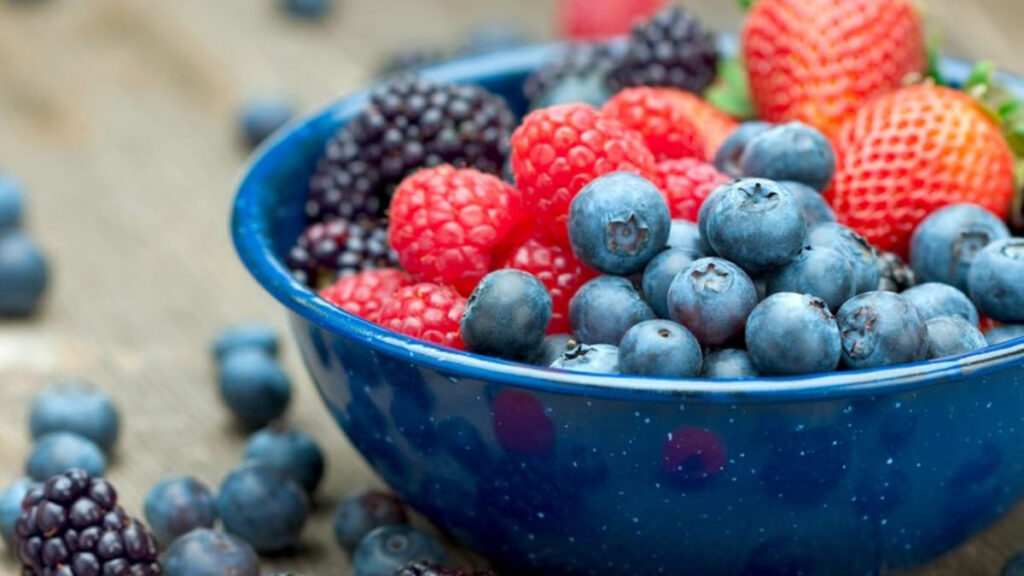
Insoluble Fiber & Its Benefits
Insoluble fiber does not dissolve in water and adds bulk to stool. It is found in foods like whole wheat, bran, nuts, and vegetables. Insoluble fiber provides benefits such as
– Promoting regular bowel movements and preventing constipation by aiding in the movement of waste through the digestive tract.
– Supporting colon health and reducing the risk of gastrointestinal disorders, including diverticular disease.
Benefits of Dietary Fibers
Digestive Health
Both soluble and insoluble fibers contribute to healthy digestion by promoting regular bowel movements, preventing constipation, and maintaining a well-functioning gastrointestinal tract.
Heart Health
Soluble fiber helps lower LDL cholesterol levels, reducing the risk of heart disease and stroke. A diet rich in fiber supports overall cardiovascular health.

Blood Sugar Control
Soluble fiber slows down the absorption of sugar, leading to better blood sugar control. This is especially important for individuals with diabetes or those at risk.
Weight Management
Fiber-rich foods are often more filling and satisfying, promoting a feeling of fullness and reducing overeating. They can also aid in weight loss by providing fewer calories per volume.
Gut Microbiota Support
Some types of fiber, known as prebiotics, nourish beneficial gut bacteria. A diverse and balanced gut microbiome is associated with improved digestion, immunity, and overall health.

Reduced Risk of Chronic Diseases
A high-fiber diet is linked to a decreased risk of chronic conditions like type 2 diabetes, obesity, and certain types of cancer, including colorectal cancer.

Stable Energy Levels
Fiber helps regulate the digestion of carbohydrates, leading to more stable blood sugar levels and sustained energy throughout the day.
Detoxification
Soluble fiber binds to toxins in the digestive tract, aiding in their removal from the body and supporting natural detoxification processes.
Now, it’s time to take a look at all the 40 high fiber foods that can help you reach your daily fiber need so that you can enjoy all these outstanding health benefits.
1. Avocado
Avocado is not only creamy and delicious but also contains about 10 grams of fiber per fruit which makes it one of the greatest high fiber foods along with tons of other health benefits thanks to its high Omega-3 content.
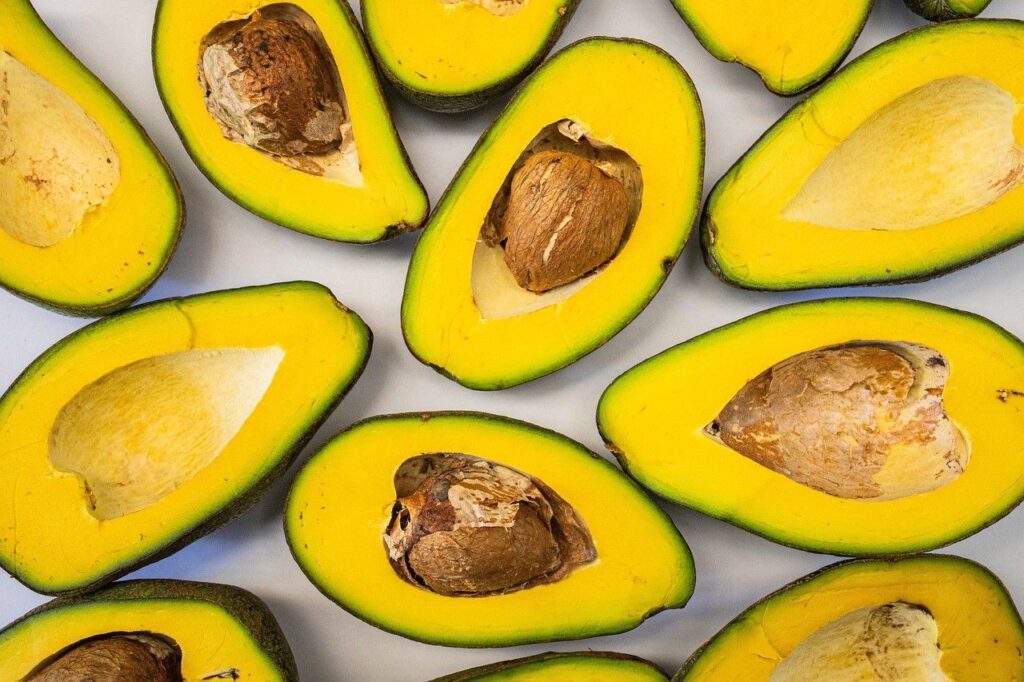
2. Apples
Apples are a classic source of dietary fiber, with about 4.4 grams of fiber in a medium-sized fruit. The majority of the fiber is found in the skin, so don’t peel them!

3. Pears
Pears provide both soluble and insoluble fiber. Eating a medium-sized pear with the skin offers about 5.5 grams of fiber.
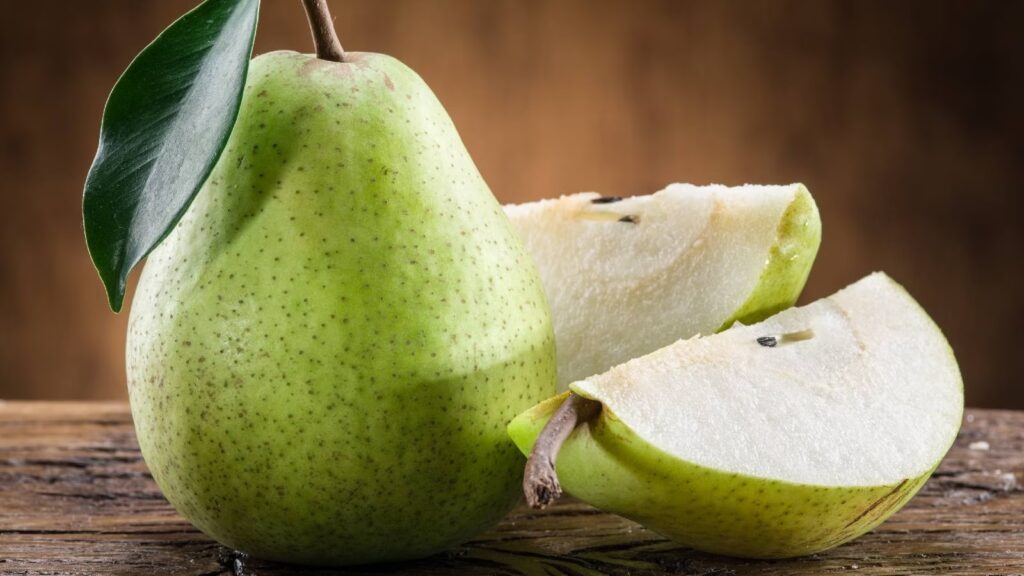
4. Broccoli
This cruciferous vegetable not only offers vitamins but also fiber. A cup of cooked broccoli provides about 5 grams of fiber.
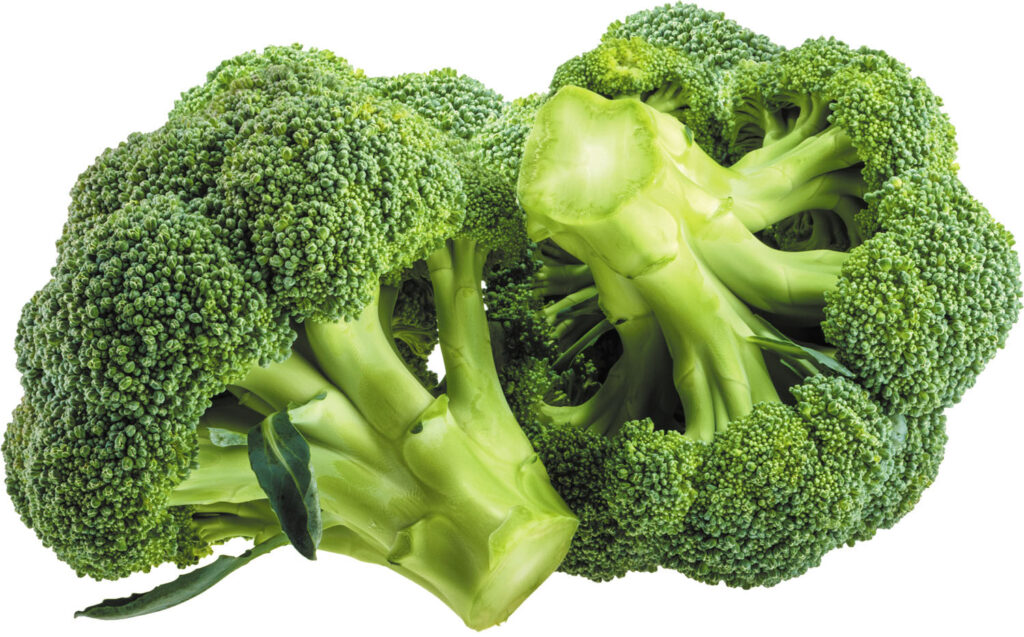
5. Lentils
Lentils are great high fiber foods as they are very rich in both protein and fiber. A cup of cooked lentils contains approximately 15.6 grams of fiber.
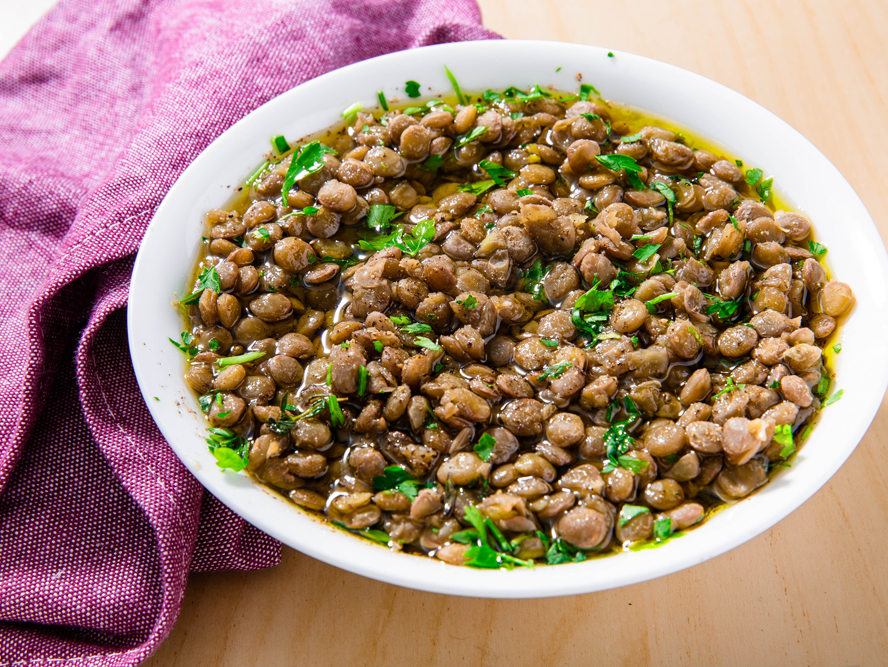
6. Carrots
Carrots are a crunchy and fiber-rich snack, containing around 3.5 grams of fiber per cup.
7. Spinach
Loaded with nutrients, spinach is a rich source of fibers. A cup of cooked spinach contains approximately 4 grams of fiber.
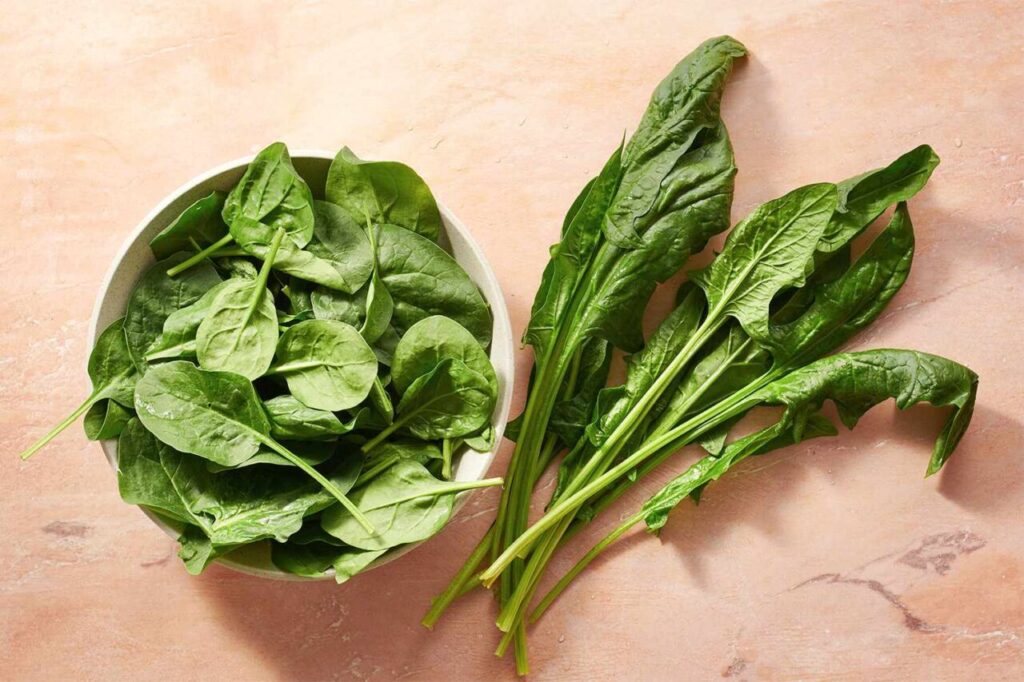
8. Artichokes
Artichokes are some amazing high fiber foods, with one medium-sized artichoke offering around 10 grams of fiber.
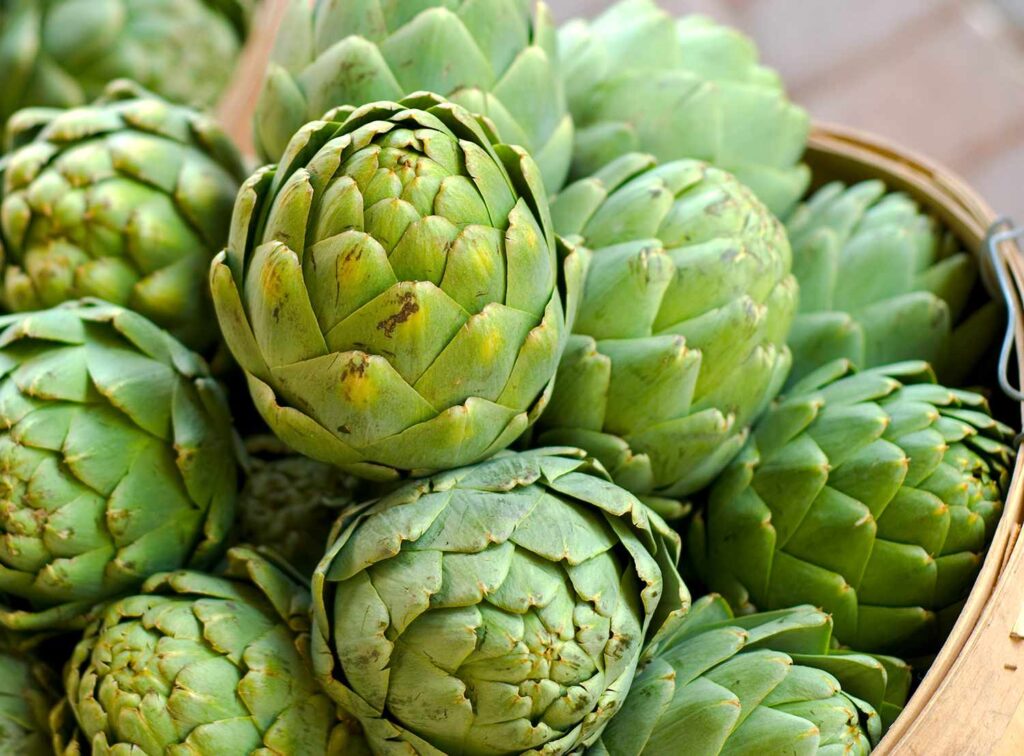
9. Oats
Oats are a powerhouse of soluble fiber. A half-cup of dry oats contains around 4 grams of fiber.
10. Brown Rice
Compared to white rice, brown rice is higher in fiber. A cup of cooked brown rice provides about 3.5 grams of fiber.
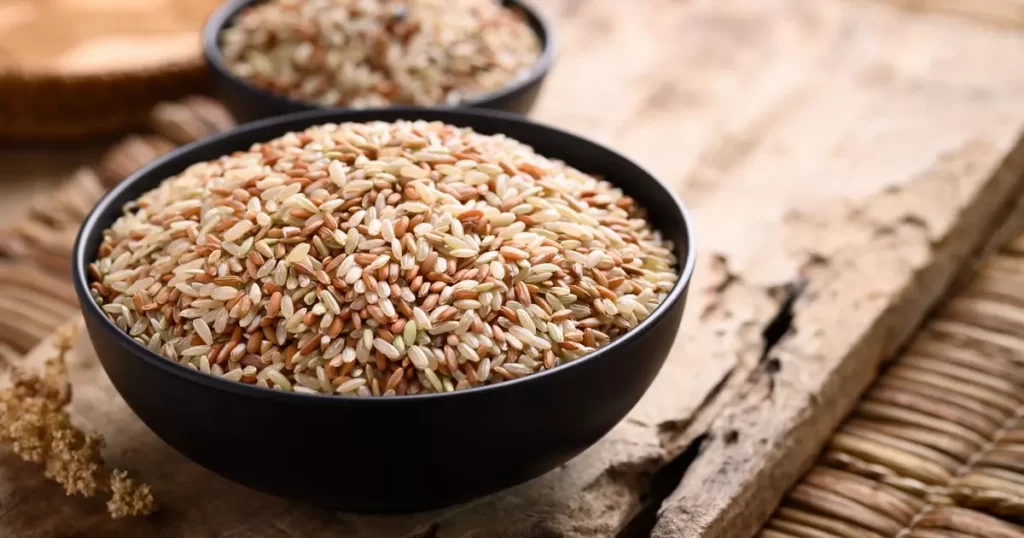
11. Whole Wheat Bread
Opting for whole wheat bread over white bread can significantly increase your fiber intake.
12. Quinoa
Quinoa is a complete protein and a good source of fiber, offering around 5 grams per cup.
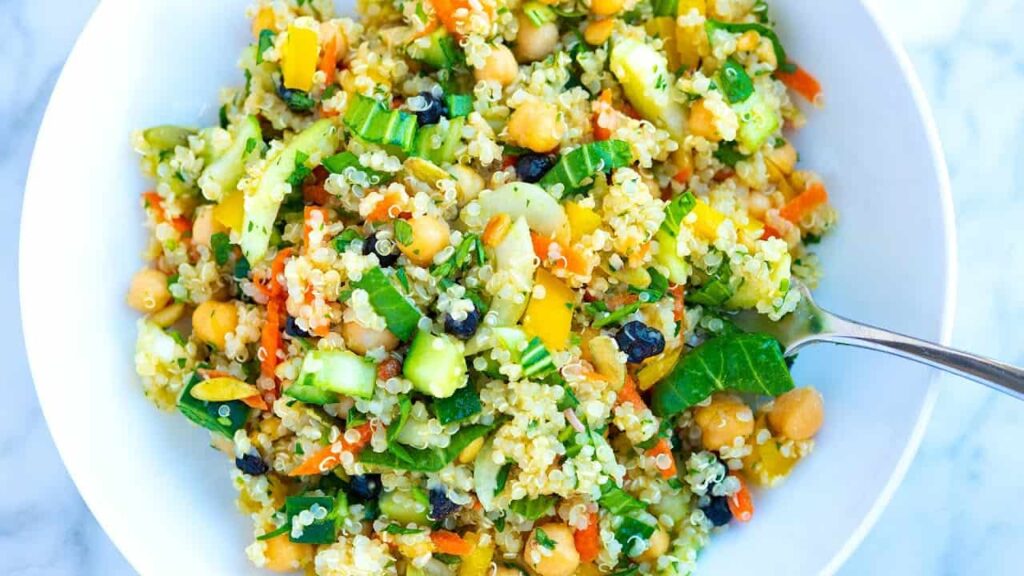
13. Beans
Beans, such as black beans, kidney beans, and chickpeas, provide a substantial amount of fiber and are versatile for cooking.
14. Almonds
Nuts like almonds offer healthy fats and fiber. An ounce of almonds contains around 3.5 grams of fiber.
15. Chia Seeds
Chia seeds are a concentrated source of fiber, with about 10 grams of fiber per ounce. Moreover, chia seeds provide tons of other health benefits thanks to its rich nutritional content.
16. Flaxseeds
Flaxseeds are also excellent high fiber foods as they are rich in both soluble and insoluble fiber, promoting digestive health. And just like chia, flaxseeds are rich in various nutrients too!
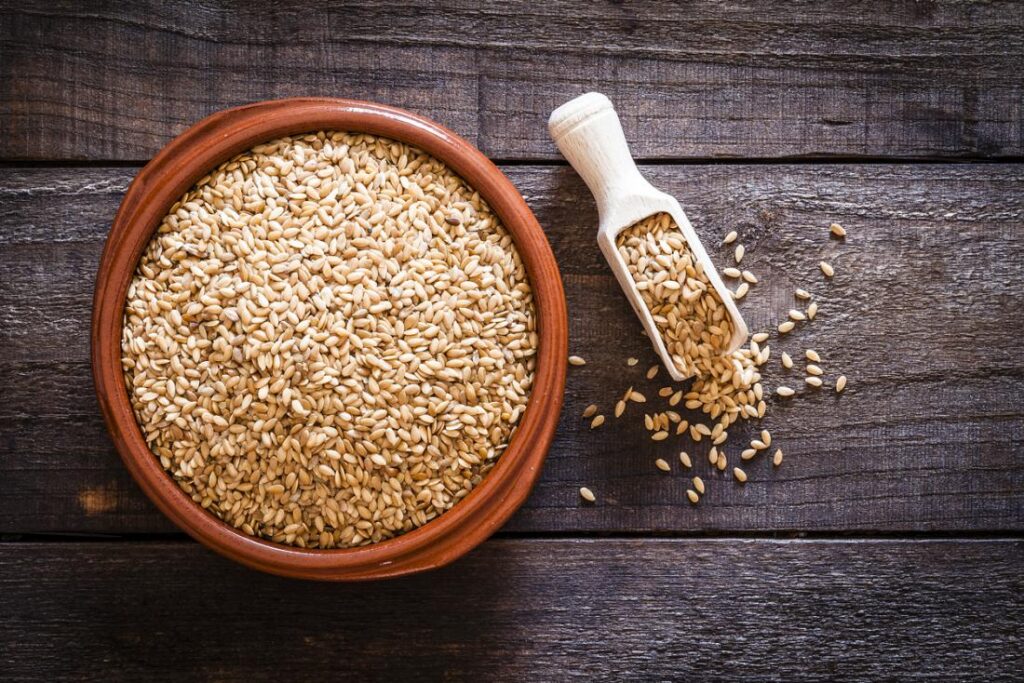
17. Brussels Sprouts
These mini-cabbages provide approximately 4 grams of fiber per cup when cooked.
18. Sweet Potatoes
One medium-sized sweet potato contains about 4 grams of fiber and is packed with other nutrients.
19. Peas
Peas, whether fresh or frozen, are a good source of dietary fiber.
20. Raisins
Raisins are a convenient and portable high fiber snack.
21. Popcorn
Air-popped popcorn is a whole grain snack that contains fiber.
22. Whole Wheat Pasta
Choosing whole wheat pasta over regular pasta can increase your fiber intake.
23. Bran Cereal
Bran cereals are specifically designed to be high in fiber and are a great breakfast option.
24. Pomegranate
Pomegranate seeds are not only rich in antioxidants but also provide fiber.
25. Berries
Berries like raspberries, blackberries, and strawberries are low in calories and packed with fiber. A cup of raspberries contains around 8 grams of fiber making it one of the greatest high fiber foods.
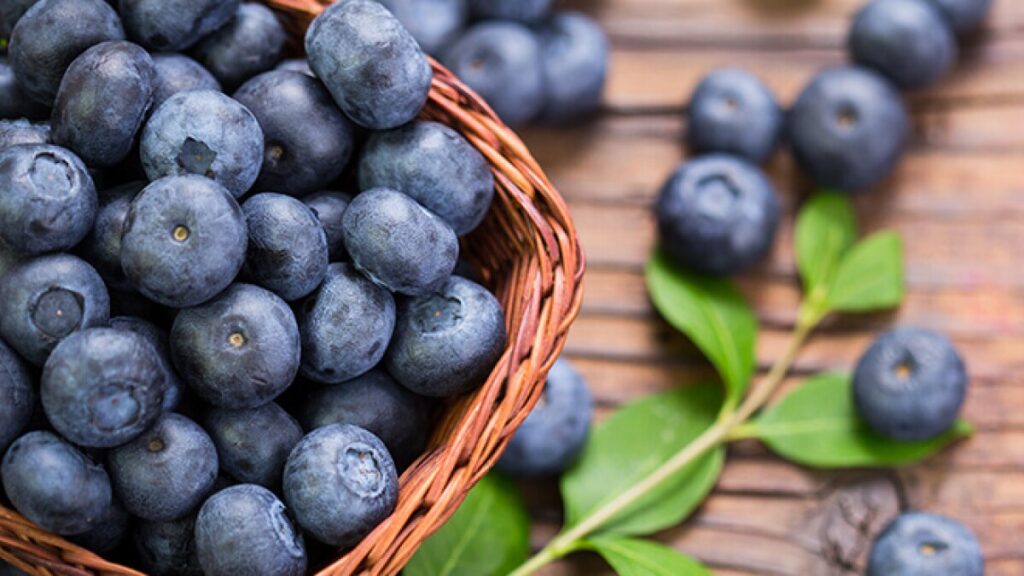
26. Kiwi
Kiwi is a tropical fruit with both soluble and insoluble fiber.
27. Oranges
Oranges offer both fiber and vitamin C, contributing to a healthy diet.
28. Whole Grain Tortillas
Using whole grain tortillas for wraps can be a tasty way to include fiber.
29. Pumpkin
Pumpkin is not only rich in fiber but also a great source of beta-carotene.
30. Whole Grain Crackers
Opt for whole grain crackers as a crunchy snack to boost your fiber intake.
31. Kale
Kale is another nutrient-packed green that offers ample fiber along with vitamins A, C, and K.
32. Sunflower Seeds
These seeds are a crunchy way to boost your fiber intake while also benefiting from their healthy fats.
33. Prunes
Prunes, or dried plums, are known for their digestive benefits, thanks to their fiber content.
34. Black Beans
Black beans are excellent high fiber foods and plant-based protein source that can be great for any type of vegan diet.

35. Chickpeas
Whether roasted or cooked into hummus, chickpeas provide both protein and fiber to your diet.
36. Whole Grain Bread
Opting for whole grain bread over refined bread ensures you’re getting more fiber and nutrients in every slice.
37. Barley
Barley is a whole grain that offers a unique type of soluble fiber known as beta-glucan, which aids heart health.
38. Coconut
Coconut flesh and coconut flour are high-fiber options that can be incorporated into various dishes.
39. Granola
A homemade granola with oats, nuts, and seeds can be a fiber-rich addition to your breakfast routine.
40. Multigrain Bread
Multigrain bread incorporates various grains, seeds, and nuts, providing a diverse source of dietary fiber.
Also Read: 20 Best High Protein Vegan Foods for Optimal Nourishment
Conclusion
Therefore, if you want to improve your overall well-being and health by enjoying all the health benefits fibers can provide then choose few sources from our list of 40 high fiber foods to fulfil your daily fiber requirement. Including a variety of these high fiber foods in your diet can really be enjoyable as well as beneficial for your overall health. Just remember to gradually increase your fiber intake to avoid digestive discomfort, and always drink plenty of water to help the fiber work its magic which means ensuring optimal digestion and absorption of nutrients. Hopefully, you found this article about 40 high fiber foods helpful enough. If you really did then let us know your genuine thoughts in the comment section down below. Thanks for visiting and appreciating our work.
